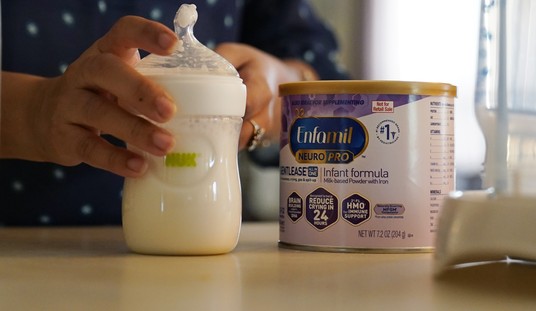Brick and mortar stores must be feeling the pinch already from the spreading of the coronavirus in the U.S. because large retailers are making a point of getting information out this week to quell any uneasiness felt by their customers. Besides worrying about disruptions in supply chains, retailers are showing concern about foot traffic, too.
Major retailers like Target are “monitoring the situation hour by hour” as customers stockpile items like hand sanitizers and household disinfectants. CEO Brian Cornell said the chain has seen “aggressive shopping”. They are in touch with domestic vendors to place additional orders as the shelves are emptied out.
I received an email from Target this week explaining the precautions and procedures being put in place by its stores to protect customers and employees. I don’t remember ever getting such an email from a major retailer. A concentration on store cleanliness is at the top of the list of actions being taken and additional hours are being given to employees tasked with that. Cornell claims that check lanes and touchscreens are being cleaned every 30 minutes. A temporary halt to in-store food tasting is in effect. A limit has been placed on the purchase of some products, including hand sanitizer. And, they are staffing up for services like order pick-up and drive-up service. Target is encouraging sick employees to stay home but doesn’t say anything in the letter about temporary compensation if that is needed.
The health and safety of our guests and team is our first priority. Read more from CEO Brian Cornell about how Target is responding to the coronavirus: https://t.co/8Mav7yaMbG
— Target News (@TargetNews) March 10, 2020
Cosmetics and skincare retailer Sephora sent out an email explaining the measures being taken in their stores. Besides increasing its weekly deep cleaning of stores and distribution centers, it is suspending in-store services like make-up applications and classes. Sephora is offering sick pay to full-time employees and hourly employees. They will pay those who are asked to self-quarantine or are quarantined.
Kroger, Publix, and Home Depot are all limiting purchases of how many cleaning products a customer can buy at once. While hand sanitizer is flying off the shelves, hand soap isn’t. I’ll take using hand soap over sanitizer any day, but maybe that’s just me. I know there is a convenience to having a little bottle of gel in your pocket or handbag while you are out and about but I’ve never liked the feel of it on my hands.
Walmart notes a worker in Kentucky tested positive for COVID-19 and is receiving medical care. The chain’s emergency leave policy is being extended to all of it’s hourly workers in the U.S.
Walmart is enacting an emergency leave policy for its 1.4 million hourly U.S. workers that allowing them to take time off without penalty if they fear the spread of a new virus.
The nation’s largest private employer said Tuesday that a worker at its store in Cynthiana, Kentucky, tested positive for the COVID-19, the disease caused by the new coronavirus. The worker is receiving medical care and her condition is improving, according to an internal memo. The retailer consulted with state and local health experts after learning of the case, reinforced its cleaning and sanitizing protocol, and the store remains open after Walmart conferred with the state government.
As part of the new emergency leave policy, Walmart said that hourly workers who work in a store, club, office or distribution center will receive up to two weeks pay if they’re required to quarantine by the government or by the retailer. Workers who have a confirmed case of the virus will also receive two weeks of pay. If they are not able to return to work after that time, additional pay may be provided for up to 26 weeks for both full- and part-time hourly workers.
CVS Pharmacy is offering free delivery of prescriptions to customers. This allows those already sick to skip a visit to the pharmacy, which protects others as well. Aetna, a CVS company, is stepping up, too.
Aetna, a CVS company, will also waive early refill limits on 30-day prescriptions for medicines typically needed to address chronic conditions like hypertension and asthma. And customers who are on Medicare, or who have Aetna health policies will be able to get prescriptions for such medications that last three months.
All of these measures taken by retailers is good for both the chains and for consumers. Business is not, as usual, these days and frankly, some of these adjustments are just common sense measures that work year-round, whether there is an outbreak of a virus or not. I’m not a germophobe but I do exercise diligence in public when it comes to protecting myself from unnecessary exposure to germs, as a regular part of everyday life. I don’t try samples of make-up in stores because it’s simply not sanitary. I don’t try samples of food products in stores that are left in unattended displays. The same goes for food samples being offered by a worker, too. Who needs to court potential exposure to who-knows-what out there?
Unfortunately for brick and mortar stores, online shopping is the way to go. I do it at every opportunity. I’ve never been an enthusiastic mall shopper anyway so it makes sense for me. We regularly use a home delivery service for groceries, too. Instacart, which is what we use, offers a variety of local stores from which to place orders. They sent out an email Wednesday to customers. They are introducing a new service option – “Leave at My Door Delivery”. The driver will place your order at your door, take a photo of it and then notify you it is there. You don’t even have to interact with the driver now if you are quarantined.







Join the conversation as a VIP Member